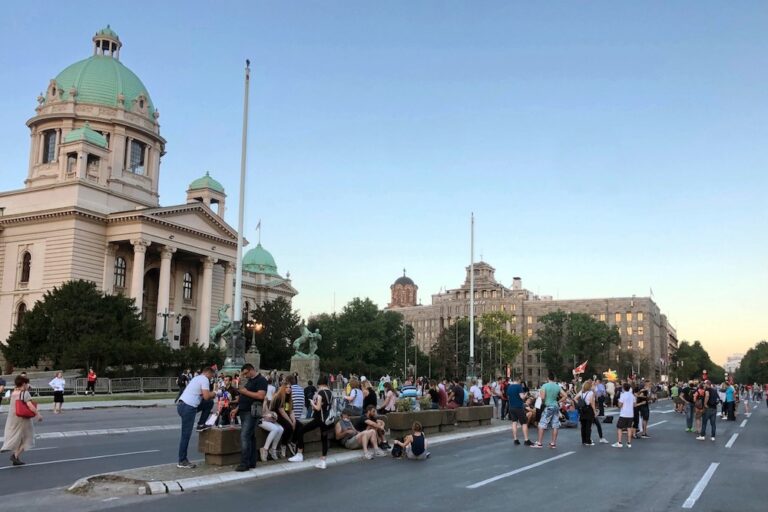(IPI/IFEX) – The following is a press release by IPI and its affiliate, the South East Europe Media Organisation (SEEMO): Press Release Vienna, 17 October 2002 SEEMO Welcomes Media Laws But Fears Delays in Implementation The International Press Institute (IPI) and its affiliate SEEMO (South East Europe Media Organisation) welcome the adoption of media laws […]
(IPI/IFEX) – The following is a press release by IPI and its affiliate, the South East Europe Media Organisation (SEEMO):
Press Release
Vienna, 17 October 2002
SEEMO Welcomes Media Laws But Fears Delays in Implementation
The International Press Institute (IPI) and its affiliate SEEMO (South East Europe Media Organisation) welcome the adoption of media laws by the Montenegrin Parliament on 16 September 2002, especially after the adoption had already been postponed several times this year. These three laws, the Media Law, the Broadcasting Law and the Law on Public Broadcasting Services, comply with international and professional media standards. The laws were drafted by a Media Working Group, with the involvement of local civil society and media representatives, officials, and contained recommendations by experts from the Council of Europe and international media organisations.
However, SEEMO and IPI are concerned about the full implementation of these laws. At the same time the laws were adopted, members of the Montenegrin Parliament decided to postpone the full implementation of the laws to 1 May 2003. As a result, there is a chaotic media situation in Montenegro. Furthermore, SEEMO and IPI are afraid that there may be another Parliamentary vote to once again postpone the implementation of these laws. SEEMO and IPI believe that the provisions contained in the new media laws should be treated as an urgent matter and should be implemented immediately.
SEEMO and IPI are also troubled by the existence of articles in the Criminal Code regarding defamation and insult. We believe that defamation should be dealt with under civil law and that so-called insult laws have been used by repressive regimes to silence journalists reporting critically on the management of governmental affairs.
SEEMO and IPI are also concerned because, during the pre-election period, journalists have been unable to report. According to information provided to SEEMO’s Vienna office, the Liberal Alliance has forbidden journalists working for the daily Vijesti from participating in two pre-election meetings, one in Budva on 7 October and the other in Danilovgrad on 8 October.
SEEMO and IPI strongly protest the continued practice, carried out by politicians, of appointing individuals to editorial and managerial positions in state and community owned media, who are clearly instruments of one political party or group. In recent months, SEEMO and IPI have registered several such cases.
According to the information before SEEMO, there have been several new cases of threats made against journalists in Montenegro during recent weeks. The duty of the state is to provide an environment in which media professionals are able to carry out their duties without fear of attack.
Oliver Vujovic, SEEMO Secretary General and Johann Fritz, IPI Director, urge the authorities and all political representatives in Montenegro to accept international media standards, to support freedom of expression reform, to replace declarations and rhetoric with concrete acts, to allow editors and journalist to work independently, professionally and without pressure from any political group, as well to ensure the safety of all journalists working in Montenegro. We remind that journalists and media have an essential role in every democratic society.


